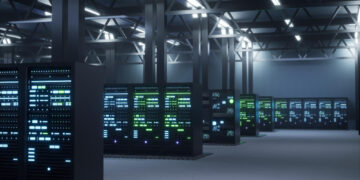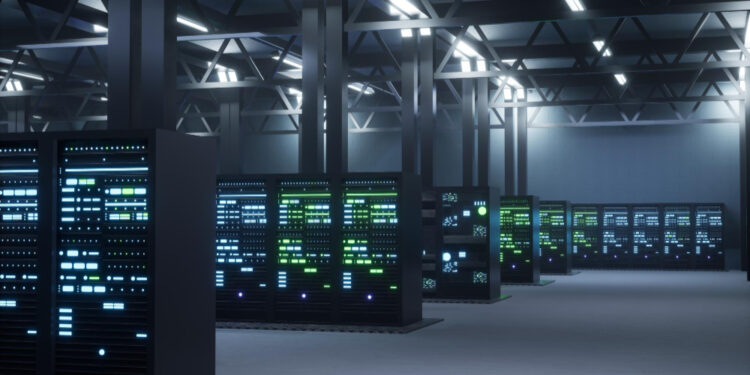In the rapidly evolving landscape of data centers, maintaining efficiency, scalability, and security is paramount. As businesses handle increasingly vast amounts of data, the infrastructure that supports this data must be robust, flexible, and future-proof. Cisco Nexus, a line of advanced switches from Cisco, plays a crucial role in building high-performance networks for data centers, enabling seamless operations and greater control over network traffic.
This article delves into the world of Cisco Nexus, breaking down its features, benefits, and role in shaping the modern data center. If you’re aiming to improve your data center operations, understanding Cisco Nexus is key to staying ahead in the digital race.
What is Cisco Nexus?
Cisco Nexus is a series of high-performance switches designed to meet the demands of modern data centers. These switches support high-density environments, multi-cloud integration, and complex workloads, offering a scalable and secure infrastructure for enterprises of all sizes. Whether it’s supporting virtualization or running critical applications, Cisco Nexus switches are the backbone of today’s sophisticated data networks.
With its support for Ethernet, Fibre Channel, and unified networks, the Nexus series is engineered to provide high-speed data transfer and low-latency performance, making it a top choice for enterprises looking to upgrade their data center operations.
Why is Cisco Nexus Crucial for Data Centers?
The demands on modern data centers are immense. As businesses migrate to cloud-based solutions and increasingly depend on data-driven applications, the infrastructure must be able to support heavy loads of data with minimal downtime. Cisco Nexus switches are designed to handle these pressures efficiently. Here’s why they’re essential:
- High-Speed Performance: Cisco Nexus offers data transfer speeds that can scale up to 400 Gbps, making it ideal for high-performance workloads.
- Scalability: As data requirements grow, Cisco Nexus scales effortlessly, supporting both small deployments and large enterprise-level operations.
- Security: With integrated security features like Segmentation and Policy Control, Cisco Nexus ensures that network access is controlled and monitored effectively.
Core Features of Cisco Nexus Switches
1. Application-Centric Infrastructure (ACI)
One of the standout features of Cisco Nexus switches is their integration with Cisco’s Application Centric Infrastructure (ACI). ACI is a software-defined networking (SDN) solution that automates and optimizes data center network resources. It simplifies the management of complex networks, making it easier to deploy, manage, and scale workloads in both private and public cloud environments.
Benefits of ACI:
- Streamlined network provisioning
- Enhanced application performance
- Simplified network troubleshooting and optimization
2. Unified Fabric Technology
Cisco Nexus switches support Unified Fabric Technology, which converges multiple data center networks (such as Ethernet, Fibre Channel, and FCoE) into a single, highly efficient network infrastructure. This eliminates the need for separate networks, reducing complexity and operating costs, while improving flexibility and speed.
The unified fabric approach is particularly beneficial for organizations running mixed environments that rely on various storage and communication protocols.
3. Virtual Port Channel (vPC)
Cisco Nexus offers Virtual Port Channel (vPC) technology, allowing businesses to link two switches into one logical switch. This enables redundancy and load balancing without creating loops in the network. The vPC feature increases network reliability and ensures high availability, which is essential for minimizing downtime in mission-critical environments.
How Cisco Nexus Enhances Network Security
As cyber threats become more sophisticated, ensuring that data center networks are secure is a top priority. Cisco Nexus switches come with built-in security features that protect data and network resources from breaches and unauthorized access. Some key security features include:
1. Micro-Segmentation
Cisco Nexus supports micro-segmentation, allowing network administrators to isolate parts of the network and apply granular security policies. This helps prevent unauthorized access to sensitive data and restricts the spread of malware across the network.
2. TrustSec Technology
TrustSec is another critical feature that ensures secure communications within a network. It enables role-based access control (RBAC), ensuring that only authorized users or devices can access specific resources. TrustSec’s encryption capabilities also provide end-to-end data protection, even when data is in transit across multiple environments.
3. Encrypted Traffic Analytics (ETA)
With Encrypted Traffic Analytics (ETA), Cisco Nexus can monitor encrypted traffic and detect threats without decrypting the data. This feature allows organizations to maintain their privacy and security compliance while still being able to identify malicious activity within their network.
The Role of Cisco Nexus in Data Center Virtualization
Virtualization is transforming data center operations, allowing businesses to run multiple virtual machines (VMs) on a single physical server. Cisco Nexus switches are integral to supporting virtualized environments by providing enhanced performance, scalability, and automation.
1. VXLAN Support
Cisco Nexus switches support VXLAN (Virtual Extensible LAN) technology, which extends Layer 2 networks over Layer 3 infrastructure, enabling scalable data center designs. VXLAN allows for the easy movement of workloads between data centers and cloud environments, ensuring that businesses have the flexibility to run applications wherever they need to be.
2. Automation and Programmability
With the rise of software-defined networking, automation has become a vital aspect of data center management. Cisco Nexus switches are built with automation in mind, supporting tools like Ansible, Python, and Cisco NX-OS APIs to enable seamless integration with automation platforms. This reduces manual intervention and ensures that network operations remain efficient.
3. Virtual Network Functions (VNFs)
Cisco Nexus also supports Virtual Network Functions (VNFs), enabling businesses to run network functions such as firewalls, load balancers, and routers on virtual machines. This reduces the need for dedicated hardware and offers a more flexible, scalable network infrastructure.
Maximizing Performance with Cisco Nexus 9000 Series
The Cisco Nexus 9000 series is one of the most popular and advanced product lines within the Nexus family. Known for its flexibility and high performance, the Nexus 9000 series is a top choice for enterprises looking to future-proof their data centers.
1. High-Density 400G Capabilities
The Cisco Nexus 9000 series supports 400G Ethernet, offering unparalleled speeds and performance for data-intensive applications. This is ideal for companies dealing with large-scale AI workloads, big data analytics, and machine learning environments.
2. Cloud-Scale Fabric
One of the key features of the Nexus 9000 series is its cloud-scale fabric architecture, which is optimized for both on-premise data centers and multi-cloud environments. The switch architecture enables businesses to seamlessly integrate with public cloud platforms like AWS, Azure, and Google Cloud, making hybrid cloud deployments more efficient.
3. Energy Efficiency
In an era where sustainability is increasingly important, the Cisco Nexus 9000 series delivers energy-efficient solutions that reduce power consumption without compromising performance. This makes it an excellent choice for businesses looking to minimize their carbon footprint while maintaining high levels of productivity.
Comparing Cisco Nexus with Traditional Switches
While traditional switches still have their place in many network infrastructures, Cisco Nexus switches provide a level of scalability, performance, and automation that traditional options often lack. Let’s compare them in key areas:
- Performance: Cisco Nexus switches offer higher speeds (up to 400G) compared to traditional switches, making them ideal for data-heavy applications.
- Automation: With support for automation tools and SDN capabilities, Nexus switches significantly reduce the need for manual configuration.
- Flexibility: Nexus switches support a range of protocols, including VXLAN and Fibre Channel, making them suitable for both cloud and traditional environments.
Future-Proofing Your Data Center with Cisco Nexus
As technology continues to evolve, it’s crucial that your data center infrastructure is built to adapt to future needs. Cisco Nexus switches provide the scalability and flexibility needed to meet tomorrow’s challenges, whether it’s adopting new cloud technologies or managing increasingly large datasets.
1. Support for 5G Networks
The rollout of 5G is set to revolutionize industries, offering faster and more reliable connectivity. Cisco Nexus switches are designed to support 5G network requirements, ensuring that your business can benefit from next-generation mobile technologies.
2. AI and Machine Learning Workloads
With the rise of artificial intelligence (AI) and machine learning (ML), data centers must be capable of processing vast amounts of data in real-time. Cisco Nexus switches offer the high throughput and low latency required to support these advanced workloads.
Conclusion
In the fast-paced world of data centers, having the right infrastructure can make all the difference. Cisco Nexus switches provide the performance, scalability, and security needed to power modern data centers and support business growth. With their advanced features such as ACI integration, unified fabric, and VXLAN support, Cisco Nexus is the ideal choice for organizations looking to build resilient, future-proof networks.
If you’re aiming to stay ahead in the digital age, investing in Cisco Nexus switches could be the key to unlocking the full potential of your data center.
Re-solution Data Ltd. is your go-to for tech solutions, specialising in Meraki SD-WAN, Cisco switches, Managed Services, Nexus, cloud security, ISE, next-gen firewall, Meraki Hardware, and security cameras. Empower your digital journey with our Cisco expertise.































































